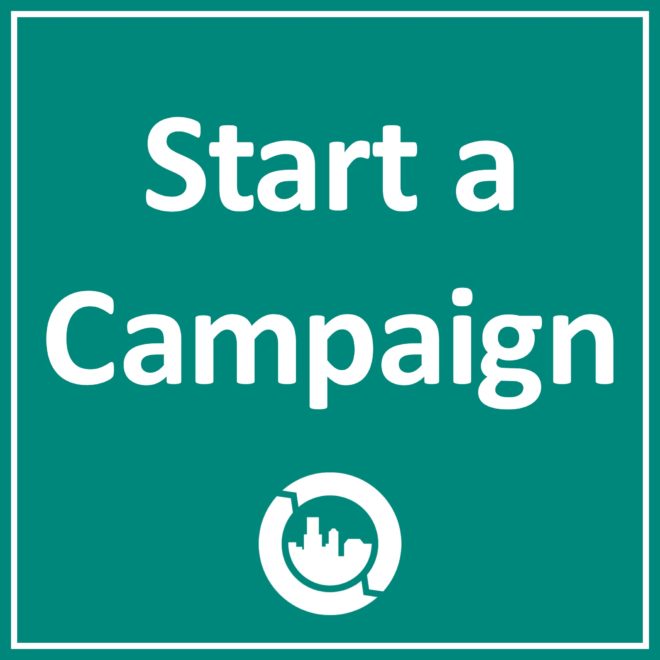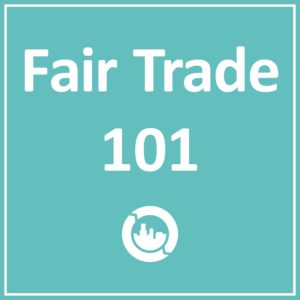Fair Trade USA and Partners Deliver Record Impact in 2011
Community Development Premiums Empower and Improve Fair Trade Farming Communities; Impact Driven by Multi-Stakeholder Collaboration
By: Fair Trade USA Fair Trade USA recently released its 2011 Almanac, an annual publication which provides detailed information on the supply and impact of Fair Trade Certified products. According to the Almanac, in 2011 farmers and farm workers earned almost $22 million in community development premiums, up over 50 percent from 2010. Check out there post below which gives examples of how farmers and workers have invested premiums. One examples is FEDECARES in the Dominican Republic which is where Fair Trade Towns visited on their recent trip to origin!
 Community Development Premiums Improve Lives
Community Development Premiums Improve Lives
Fair Trade community development premiums enabled projects in areas like healthcare, education, environmental conservation, community infrastructure and quality and productivity for over 1 million farmers in 70 countries around the world.
FEDECARES, a coffee cooperative in the Dominican Republic, believes that the additional income from community development premiums has been critical to their survival and success. Their members have invested in projects ranging from community healthcare to road improvement and have also created scholarship funds for community members to attend college. Cooperative member Juan Arias said that “if it wasn’t for Fair Trade, we would probably not exist; we would not be able to remain coffee growers, working the land we love.”
Similar impact can be seen on Fair Trade flower estates across the globe. On large farms where the workers do not own land, Fair Trade premiums are crucial to worker empowerment and community improvement. After democratically electing a Fair Trade committee, workers at the Hoja Verde flower farm in Ecuador decided which projects to invest in based on their most pressing needs. “Through the sale of our roses, we have earned enough Fair Trade community development premiums to invest in adult education classes, micro-financing for home appliances, education for our children, pediatric care and more,” said farm worker Rocio Giron, referring to the $1.3 million in premiums earned by flower farm workers since 2007.
Now, Fair Trade USA’s new Farm Workers Standard allows coffee farm workers to receive the benefits of Fair Trade for the first  time in the history of the model. Fazenda Nossa Senhora de Fatima, a 100 percent organic coffee farm in Brazil, has become the first ever Fair Trade Certified coffee estate. They achieved certification by complying with rigorous Fair Trade standards that benefit both their workers and the environment. The 110 farm workers there have democratically elected to spend their Fair Trade community development premiums on eye and dental care; many workers just received their very first pair of eye glasses. “Another important change has been the farmers taking on increased roles in the operations of the farm,” said Luir Fontes, farm worker representative from Fazenda Nossa Senhora de Fatima. “Farmers now see the opportunity to have a direct influence on the success of the farm. The transparency, increased funds, and ownership of work have changed what was previously seen as a 200-hectare farm with 100 workers into 100 farmers with their own 2-hectare projects.”
time in the history of the model. Fazenda Nossa Senhora de Fatima, a 100 percent organic coffee farm in Brazil, has become the first ever Fair Trade Certified coffee estate. They achieved certification by complying with rigorous Fair Trade standards that benefit both their workers and the environment. The 110 farm workers there have democratically elected to spend their Fair Trade community development premiums on eye and dental care; many workers just received their very first pair of eye glasses. “Another important change has been the farmers taking on increased roles in the operations of the farm,” said Luir Fontes, farm worker representative from Fazenda Nossa Senhora de Fatima. “Farmers now see the opportunity to have a direct influence on the success of the farm. The transparency, increased funds, and ownership of work have changed what was previously seen as a 200-hectare farm with 100 workers into 100 farmers with their own 2-hectare projects.”
 Collaboration Drives Impact
Collaboration Drives Impact
It’s taken many stakeholders, working across the supply chain, to deliver this growth in sales and impact. An example of this effort is the recent Intercambio Peru 2012 event. Fair Trade USA helped bring together 44 producer organizations, along with importers, traders, NGO’s and social lenders, for a multi-day event in Peru. The goal of the event was to increase transparency and collaboration in the supply chain, exchange ideas, and create a productive space to share news and experiences. During this time, Green Mountain Coffee Roasters, Inc signed contracts for millions of pounds of coffee for the upcoming harvest, which will result in approximately $3.15 million in Fair Trade premiums back to farmers. Social lenders like Root Capital, Rabobank, Shared Interest and responsAbility were also present, each signing contracts with numerous Latin American producer groups to provide access to affordable credit.
“Fair Trade USA’s mission is to alleviate poverty through trade,” said Mary Jo Cook, Chief Impact Officer at Fair Trade USA. “The only way we can achieve this mission is by working with others to maximize our efforts. Through increased collaboration with U.S. businesses, NGO’s, social lenders, conscious consumers and other industry leaders, we helped deliver more impact to farmers and workers in 2011 than ever before.”





You must log in to join the discussion. If you are not already a member registering is easy.